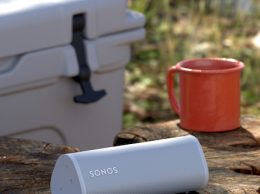Court upholds InTouch Health’s patents
IN THIS ARTICLE
- Health Care & Life Science Topic
- Staff Report Author
By Staff Report Thursday, May 22nd, 2014
A federal appeals court has handed down a mixed result in the legal battle InTouch Health is waging against a lower-priced competitor, finding that the Goleta company’s patents were valid but had not been infringed.
InTouch said May 22 that the United States Court of Appeals for the Federal Circuit in Washington, D.C., reversed the decision of a lower court to invalidate two key patents on its robots. InTouch also scored three victories at the U.S. Patent Office protecting its rights to “features that are fundamental to making remote presence telemedicine robots commercially viable,” the company said in a news release.
But the appeals court upheld a jury’s verdict that New Hampshire-based VGo Communications did not infringe three patents held by InTouch.
The patent battle broke out in 2011 when InTouch filed suit in federal court in Los Angeles against VGo, which makes a smaller and cheaper telemedicine robot. In late 2012, a jury decided in VGo’s favor and invalidated two of the three patents involved in the case. At the same time, VGo asked federal officials to re-examine four InTouch patents.
With two patents upheld on appeal and three cleared by patent officials, only one InTouch patent is still pending examination, InTouch said.
The court upheld patents around sending information to multiple doctors. In a news release, InTouch CEO Yulun Wang said that was likely to be a key advantage for InTouch, whose robots are in use in 15 percent of the nation’s hospitals.
“[W]e are confident that as remote presence telemedicine is more broadly adopted, the need to arbitrate user access among multiple doctors, healthcare professionals, and family and friends will be key to conducting successful remote presence sessions. The company has invested more than a decade and tens of millions of dollars to create this market. To protect that investment, we will defend our intellectual property rights vigorously,” Wang said in a release.
In a blog post, VGo CEO Peter Vicars criticized InTouch, saying the company “used the patent system as its sword.” He said his company’s mission is to offer a lower-cost alternative to InTouch’s robots.
“When there is a challenge to find the dollars to improve care coupled with the fact that we as a nation are spending 20 percent of our GDP on healthcare, everyone needs to be finding ways to reduce overall costs and delivering valuable solutions — not adding to it all with senseless lawsuits,” Vicars wrote in the post.











